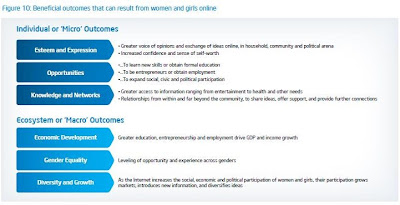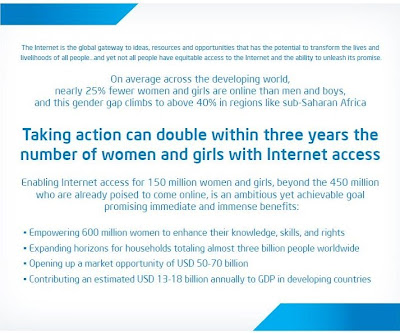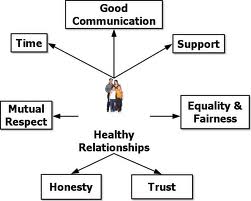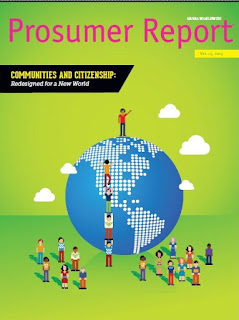I've always wanted a home of my own. Not my parents' place...but my own pad. As things go, the home I was born and brought up in reflects my parents taste and restrictions. It's in a very convenient location though, and where now flats are priced in crores as a matter of routine. Even my parents were surprised at this development a few years ago..but then after Nariman Point, this area is the newly minted business district of Mumbai. If gossip among shopkeepers is true (and all of them here are part-time real estate brokers when they are not being fruit/veggie vendors, grocers, tailors etc!), then atleast three 5-star hotels are also likely to come up in Prabhadevi.
So keeping all of this in mind, homes are, ironically, not as comfortably priced within the reach of upper middle class Indians anymore. They are outrageously priced and a lot of people I grew up with who are married, are living with in-laws. Where there is an only son/daughter, then ofcourse there is no need to buy a home of your own. These lucky people can just wait to inherit, which is exactly what many are doing. Meanwhile, they camp out of rented homes within India or abroad. This comfort zone is just not available to someone like me with two younger siblings.
Knowing this, I've always been monitoring real estate prices (and news) and have noticed not only how they have skyrocketed, but also how skewed the demographics have become in the city. People who came to Mumbai and squatted all over the place on pavements in upscale areas, are now being given homes by MHADA because developers can claim extra floor space index (FSI) when redeveloping surrounding properties that they have acquired. This takes care of the eyesore that these slums had become..but it also makes flat owners of people who were, until yesterday, stealing electricity from the public light poles. And everyone knows, that these people have figured out how to earn money from their flats while they go back to living in slums somewhere else.
I can't believe real estate developers in India are this foolish - to keep giving flats to the same people in different parts of Mumbai..but then what if they choose to ignore doing this? If they are watching out for scamsters, then good for them because they want people like us to pay through our teeth, for their expensive apartments, when our 'poorer' next-door neighbours are getting it free of cost. Have they realised how stupid this sounds? Why would I even want my driver/peon/servant as a neighbour in the first place? All egalitarian big talk aside, even Shabana Azmi wouldn't want slum-dwellers as her neighbours. She just wants them to be taken off pavements and given proper homes.
Types of Fraud
I don't believe these crazy prices are justified. The infrastructure in Mumbai takes two steps forward and four steps behind, and no one is fooled about this being progress. I agree that cost of land has gone up but then builders pad up everything else. When they can form a legal cartel (like OPEC) and negotiate better steel, cement, glass (i.e. raw material) prices, they work in competition with each other. Then they construct ever taller buildings with exorbitant price tags to it, and expect all of us to come running to them with cash in our hands.
I recently came across a report called 'Fighting Fraud in Construction', which talks about this in detail. And the report very clearly states that real estate developing firms are the ones who should be taking the initiative to curb fraud, bring down their cost of doing business and pass on these benefits to us. How many of them in India will do it, is anybody's guess.
The report states steps that employees of real estate development firms need to do to watch out for bribery, fake billing, corruption etc, and also how senior management needs to back them up. Whistleblowing should be encouraged and also done discreetly.
But we can vote with our wallets too. We can refuse to buy their overpriced apartments and look out for resale homes. Or stay in rented ones. After all, if you customise a place enough, it could pass for your home. Just don't stoop to renting from a slum dweller. Those homes were given to these people to live in and not to make money out of, so go ahead and report such people to the police.
Graphic is from the report. Read the report here and pass it on: http://www.grantthornton.co.uk/globalassets/1.-member-firms/united-kingdom/pdf/publication/2013/time-for-a-new-direction.pdf
So keeping all of this in mind, homes are, ironically, not as comfortably priced within the reach of upper middle class Indians anymore. They are outrageously priced and a lot of people I grew up with who are married, are living with in-laws. Where there is an only son/daughter, then ofcourse there is no need to buy a home of your own. These lucky people can just wait to inherit, which is exactly what many are doing. Meanwhile, they camp out of rented homes within India or abroad. This comfort zone is just not available to someone like me with two younger siblings.
Knowing this, I've always been monitoring real estate prices (and news) and have noticed not only how they have skyrocketed, but also how skewed the demographics have become in the city. People who came to Mumbai and squatted all over the place on pavements in upscale areas, are now being given homes by MHADA because developers can claim extra floor space index (FSI) when redeveloping surrounding properties that they have acquired. This takes care of the eyesore that these slums had become..but it also makes flat owners of people who were, until yesterday, stealing electricity from the public light poles. And everyone knows, that these people have figured out how to earn money from their flats while they go back to living in slums somewhere else.
I can't believe real estate developers in India are this foolish - to keep giving flats to the same people in different parts of Mumbai..but then what if they choose to ignore doing this? If they are watching out for scamsters, then good for them because they want people like us to pay through our teeth, for their expensive apartments, when our 'poorer' next-door neighbours are getting it free of cost. Have they realised how stupid this sounds? Why would I even want my driver/peon/servant as a neighbour in the first place? All egalitarian big talk aside, even Shabana Azmi wouldn't want slum-dwellers as her neighbours. She just wants them to be taken off pavements and given proper homes.
Types of Fraud
I don't believe these crazy prices are justified. The infrastructure in Mumbai takes two steps forward and four steps behind, and no one is fooled about this being progress. I agree that cost of land has gone up but then builders pad up everything else. When they can form a legal cartel (like OPEC) and negotiate better steel, cement, glass (i.e. raw material) prices, they work in competition with each other. Then they construct ever taller buildings with exorbitant price tags to it, and expect all of us to come running to them with cash in our hands.
I recently came across a report called 'Fighting Fraud in Construction', which talks about this in detail. And the report very clearly states that real estate developing firms are the ones who should be taking the initiative to curb fraud, bring down their cost of doing business and pass on these benefits to us. How many of them in India will do it, is anybody's guess.
The report states steps that employees of real estate development firms need to do to watch out for bribery, fake billing, corruption etc, and also how senior management needs to back them up. Whistleblowing should be encouraged and also done discreetly.
But we can vote with our wallets too. We can refuse to buy their overpriced apartments and look out for resale homes. Or stay in rented ones. After all, if you customise a place enough, it could pass for your home. Just don't stoop to renting from a slum dweller. Those homes were given to these people to live in and not to make money out of, so go ahead and report such people to the police.
Graphic is from the report. Read the report here and pass it on: http://www.grantthornton.co.uk/globalassets/1.-member-firms/united-kingdom/pdf/publication/2013/time-for-a-new-direction.pdf

































